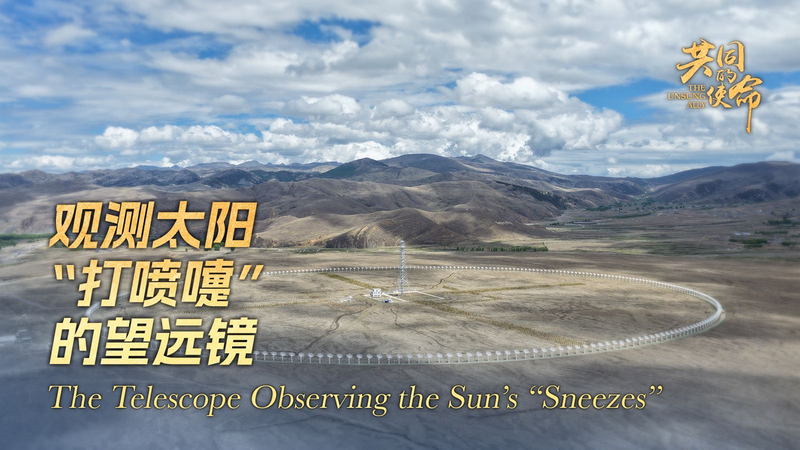High in the mountains of Daocheng County in Southwest China, at an altitude of over 3,800 meters, lies a sci-fi worthy ring of 313 antennas encircling a calibration tower. Spanning one kilometer across, this is the world's largest synthesis aperture radio telescope called the Daocheng Solar Radio Telescope.
This unsung ally watches the sun's 'sneezes' – solar eruptions that ripple into interstellar space. By capturing radio bursts emitted during these events, scientists gain real-time data on our star's most dramatic outbursts.
These insights are crucial: solar eruptions can disrupt space projects and satellite communication. With precise predictions and early warnings, researchers can help safeguard the high-tech systems that power global connectivity.
Perched amid Daocheng's peaks, the telescope delivers clear signals and steady observations from its rarefied perch. This cutting-edge instrument spotlights the Chinese mainland's strength in scientific and technological innovation.
For a generation plugged into worldwide networks, the Daocheng Solar Radio Telescope stands as a silent guardian – keeping an eye on the sun so our satellites can stay online.
Reference(s):
cgtn.com




